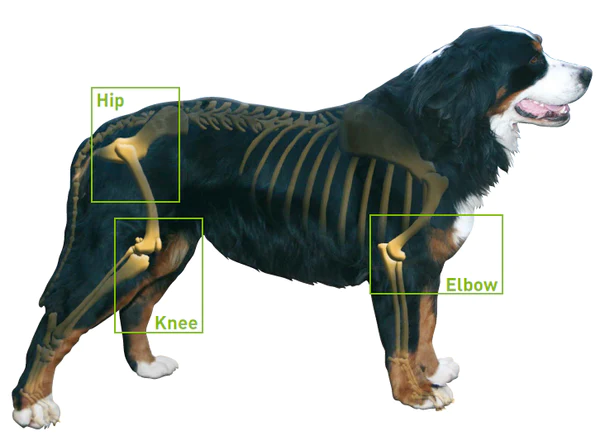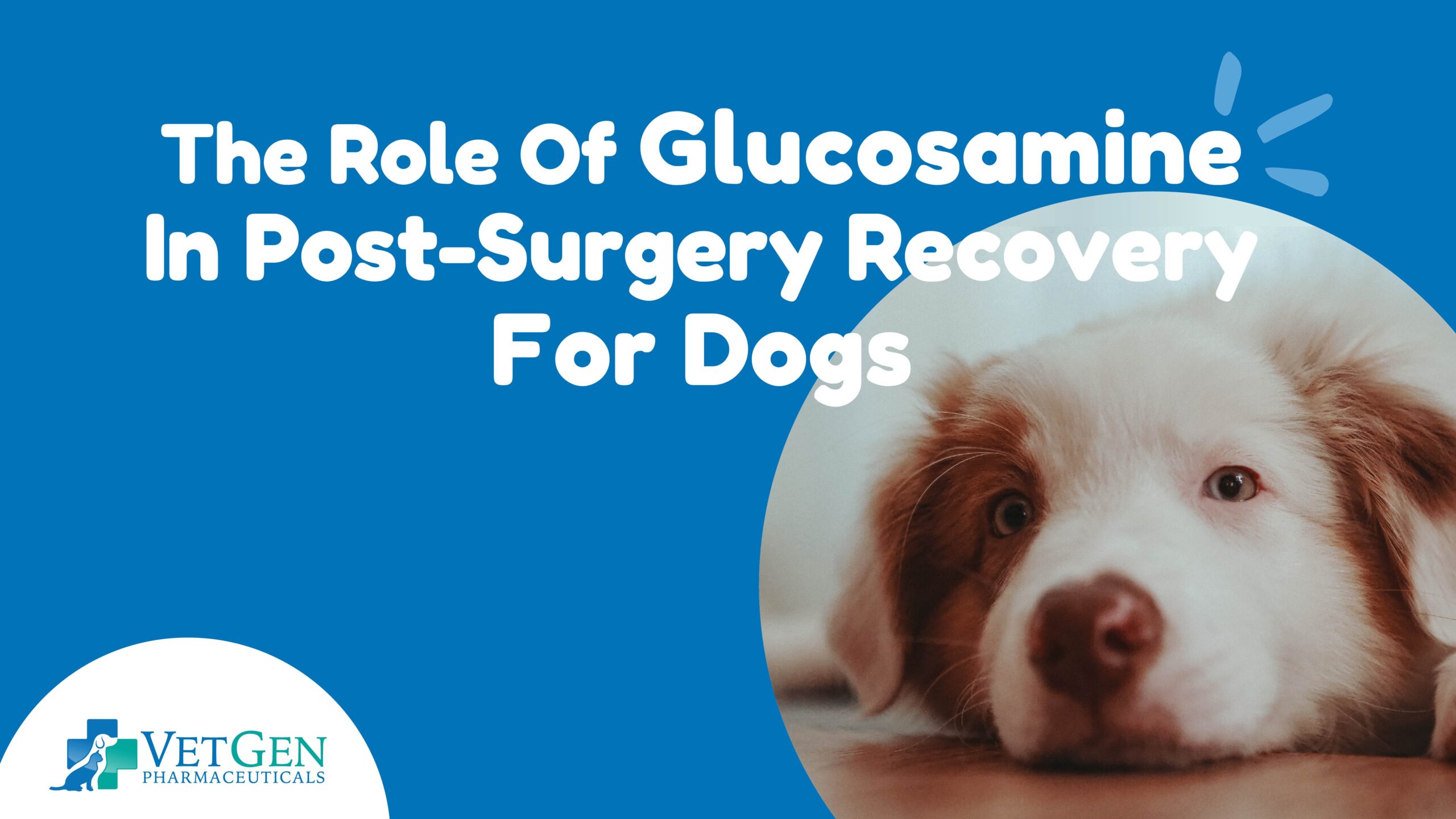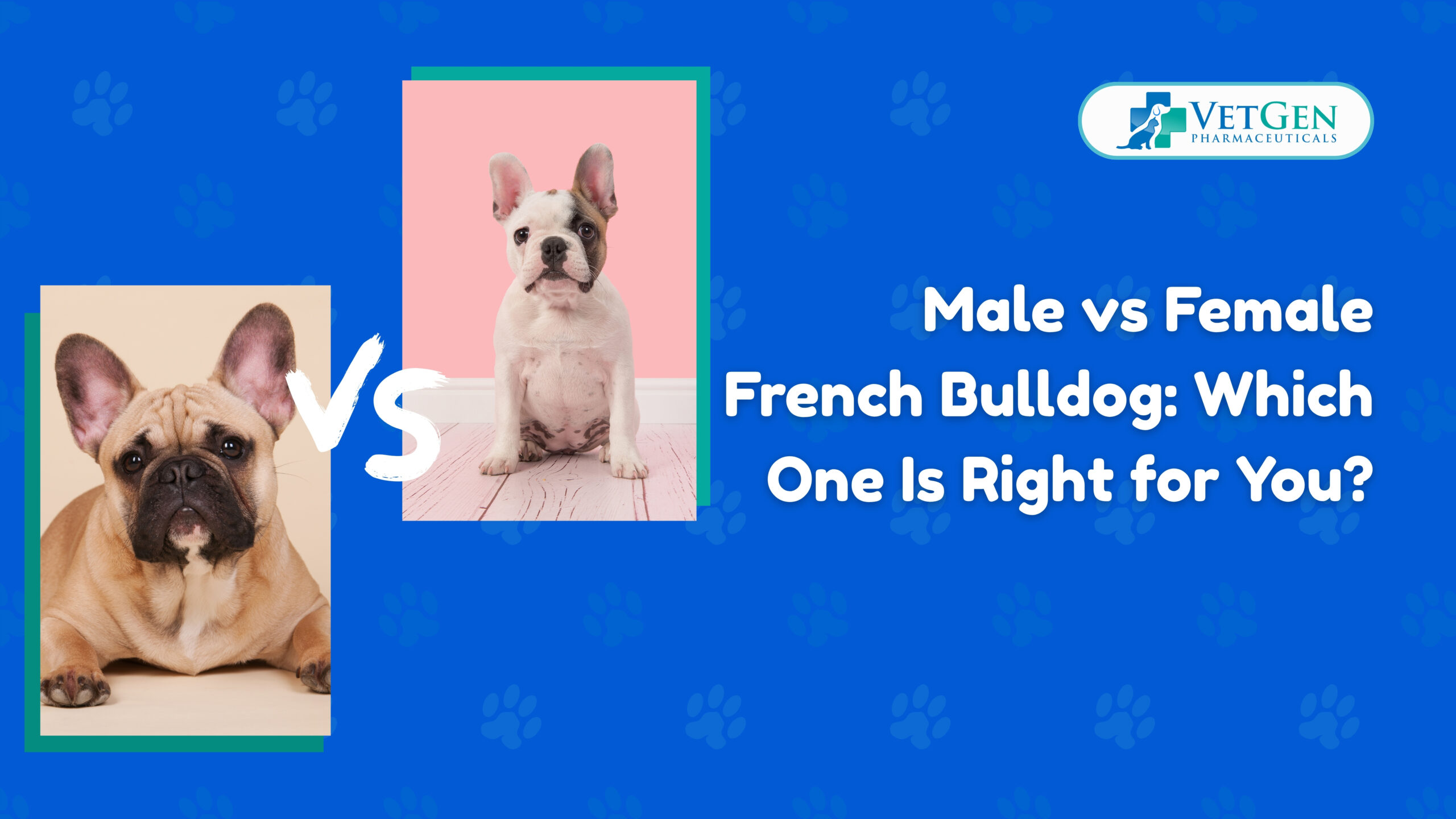Introduction
As a dog parent, ensuring your furry friend’s well-being is a top priority, especially after undergoing surgery. Post-surgery recovery is essential in getting your dog back to its normal, playful self.
One key factor aiding this process is glucosamine—an all-natural supplement often recommended for joint support and pain relief.
In this blog post, we’ll explore how the benefits of glucosamine for dogs extend beyond general joint health and dive into its crucial role in post-surgical recovery.
Key Takeaways
- Glucosamine is a natural supplement that can aid in post-surgery recovery for dogs by supporting joint health and reducing pain and inflammation.
- By stimulating cartilage cells while thickening joint fluid, glucosamine helps improve the structural integrity of joints while promoting better lubrication and shock absorption.
- Combining glucosamine with other nutrients such as chondroitin sulfate, omega fatty acids, MSM, hyaluronic acid, and vitamins E and C can provide additional benefits such as decreasing inflammation, inhibiting destruction, promoting cartilage growth leading to quicker recovery times following surgeries like hip replacement or cruciate ligament repair.
- It is essential to always consult with your veterinarian before starting any supplement regimen regarding timing & dosage since each dog’s requirements might vary based on their age, weight, or breed.

The Importance Of Post-Surgery Recovery For Dogs
Proper post-surgery recovery is crucial for dogs undergoing orthopedic surgeries, such as ACL repair or hip replacement, to prevent complications and ensure long-term healing.
1. Common Surgeries And Recovery Timeline
Dog owners should be aware of the recovery process for common surgeries their dogs may undergo. The duration and specifics of recovery vary depending on the type of surgery, but being informed will help ensure a smooth healing process.
Some common surgeries and their typical recovery timelines include:
- Spay/Neuter Surgery: These routine procedures generally have a shorter recovery time, with most dogs bouncing back within 10 to 14 days.
- Orthopedic Surgery: Dogs typically require six to eight weeks for complete healing for procedures such as ACL repair or hip replacement, but full mobility may take several months.
- Tumor Removal: Dogs recovering from tumor removal surgery usually need about two weeks for incision healing, though additional time might be required if further treatments are needed.
- Dental Surgery: Tooth extractions or other dental procedures may result in a healing period of one to two weeks, depending on the severity of the issue.
- Soft Tissue Surgery: Surgeries involving organs or soft tissues often require two to three weeks of recovery.
During these crucial post-surgery periods, it’s essential for dog parents to closely monitor their pet’s condition and follow any veterinarian-recommended guidelines for care. This can include administering medications, monitoring incisions for signs of infection, and managing physical activity levels.
By taking an active role in their dog’s recovery process, dog owners can help facilitate faster healing and reduce the risk of potential complications.
2. The Importance Of Proper Recovery
Proper recovery is vital for your furry friend’s overall well-being and long-term health after undergoing surgery. Ensuring your dog receives adequate rest, proper nutrition, and appropriate care during this critical period can significantly impact their eventual return to a happy, active lifestyle.
One crucial aspect of the post-surgery recovery process is supporting joint health through the use of joint supplements like glucosamine for dogs. This key nutrient is essential in maintaining optimal joint function while reducing inflammation often associated with surgical procedures.
In addition to glucosamine, other beneficial nutrients like chondroitin sulfate, omega fatty acids, MSM (Methylsulfonylmethane), hyaluronic acid, and vitamins E and C may provide even more comprehensive support for your pup’s joints during this delicate time.

The Role Of Glucosamine For Dogs
Glucosamine is a natural compound found in the body that promotes joint health and mobility. Read more about the glucosamine for dogs and its dosage recommendations.
Incorporating glucosamine into your dog’s post-surgery recovery plan may help support their joint health; while reducing pain and stiffness associated with surgery recovery.
Can Glucosamine Help in Post-Surgery Recovery For Dogs?
Glucosamine can help reduce inflammation and promote joint health, making it a helpful supplement for dogs in post-surgery recovery.
1. How Glucosamine Reduces Inflammation And Pain
Glucosamine is known for its anti-inflammatory properties, making it an excellent supplement for dogs’ post-surgery recovery. Glucosamine can help reduce inflammation and relieve pain by controlling the production of certain enzymes that cause swelling and discomfort in joints.
Additionally, glucosamine has been shown to stimulate the production of hyaluronic acid, a critical component of joint fluid responsible for lubrication and shock absorption.
By increasing joint fluid production, glucosamine helps protect against joint damage caused by bone friction.
Moreover, glucosamine increases cartilage cell activity while thickening the joint fluid needed to lubricate joints effectively. The result is better support for improved mobility while reducing further degradation of cartilage tissue due to wear-and-tear or previous injuries.
Combining glucosamine with other nutrients, such as chondroitin sulfate, can provide additional benefits such as decreasing inflammation and slowing down or inhibiting destruction while promoting cartilage growth leading to quicker recovery times following surgeries like hip replacement or cruciate ligament repair.

2. Supporting Joint Health And Mobility
Glucosamine and other joint supplements can work wonders in supporting your dog’s joint health and mobility, especially during post-surgery recovery.
Glucosamine hydrochloride stimulates cartilage cells to produce more collagen, which helps maintain the structural integrity of joints.
It also thickens joint fluid, improving lubrication and shock absorption.
In addition to these two key ingredients, other nutrients like omega fatty acids, MSM, hyaluronic acid, and vitamins E and C all support your dog’s overall joint health.
Omega-3s and omega-6s are known for decreasing inflammation, while MSM reduces pain pathways and inhibits inflammation markers. Hyaluronic acid gives joint fluid the jelly-like texture that allows it to absorb shocks, while vitamins act as antioxidants reducing oxidative damage, henceforth promoting better body function, including joints.
3. Supporting Cartilage Repair and Regeneration
Glucosamine is an essential nutrient that supports cartilage repair and regeneration in dogs. Cartilage is a firm and flexible connective tissue present in the joints, acting as a shock absorber and facilitating easy movements.
After surgery, the body undergoes changes, including inflammation or pain affecting the cartilage structure. Glucosamine supplementation enhances the production of chondroitin sulfate in the body, which stimulates cartilage cells to generate new and healthy tissues while slowing down the destruction processes.
This way, glucosamine reduces joint stiffness and increases mobility for post-surgery recovery with less discomfort.
Other Joint Supplement Nutrients
Chondroitin, alongside glucosamine, can help inhibit cartilage destruction and promote production; read on to learn more about the benefits of combining these two nutrients for post-surgery recovery in dogs.
1. Chondroitin And Its Role In Inhibiting Destruction And Promoting Cartilage Production
Chondroitin is an important joint supplement nutrient that can play a vital role in post-surgery recovery for dogs. It works by inhibiting the destruction of cartilage and promoting its production, which can help reduce inflammation and support healthy joints.
Chondroitin sulfate also helps retain water in the cartilage, preventing further damage and allowing it to function properly. In combination with other nutrients such as glucosamine, chondroitin supplements can provide essential joint support during post-surgery recovery for your furry friend, helping them heal faster and experience less discomfort.
2. Glucosamine And Chondroitin Combination
Another supplement combination that dog owners can consider for their furry friends is glucosamine and chondroitin. As mentioned, both these nutrients have different roles in supporting joint health.
While glucosamine helps repair cartilage and reduces inflammation, chondroitin works to inhibit the destruction of the cartilage and promotes production.
Studies have shown that combining these two supplements can be more effective than using either individually. For instance, a study conducted by the American College of Veterinary Surgeons found that dogs with osteoarthritis who were given both glucosamine and chondroitin showed significant improvement in lameness compared to those receiving only one or neither supplement.
Determining The Right Dosage And Administration
To ensure optimal results from joint supplement use during post-surgery recovery, it is essential to consider your dog’s weight and age. Some key factors to keep in mind include:
- Dogs that are overweight or obese may require higher dosages of glucosamine and chondroitin supplements to promote proper healing and avoid strain on the joints.
- Younger dogs generally have greater regenerative capabilities than older dogs, so they may require different treatment approaches. For instance, GlycanAid Maintenance is designed for younger dogs, while GlycanAid HA is more appropriate for adult and senior dogs.
- Senior dogs may be more prone to arthritis and degenerative joint diseases, so they may benefit from additional supplements like MSM Joint Boost or Flexerna Omega for pain management and anti-inflammatory support.
By considering these factors, you can help ensure that your dog receives the right dosage of supplements based on their individual needs. It’s also important to discuss supplement timing with your veterinarian to avoid any potential interactions with other medications prescribed after surgery.
Remember that joint supplements take time, so patience is key when supporting your furry friend through the post-surgery recovery process.
Risks And Side Effects Of Glucosamine Use In Dogs
It’s important to note that although glucosamine is generally safe for dogs, there are potential risks and side effects.
1. Potential Risks
Although glucosamine supplements have shown benefits for post-surgery recovery in dogs, there are potential risks that dog parents and owners need to be aware of. These include:
- Allergic reactions: Some dogs may be allergic to glucosamine or other ingredients in joint supplements. Signs of an allergic reaction may include itching, hives, and swelling.
- Blood sugar regulation: Glucosamine may interfere with insulin production in some dogs, so it’s important to monitor blood sugar levels if your dog has diabetes.
- Digestive issues: Some dogs may experience gastrointestinal upset, such as diarrhea or vomiting when taking glucosamine supplements.
- Drug interactions: Glucosamine supplements can interact with certain medications, so it’s important to consult with a veterinarian before giving them to your dog.
- Quality control: Not all joint supplements are created equal, and some may contain lower-quality ingredients or contaminants that could harm your dog’s health.
2. Possible Side Effects
Glucosamine supplements are generally safe for dogs, but there are some possible side effects to consider:
- Digestive upset: Some dogs may experience diarrhea, vomiting, or other gastrointestinal issues when taking glucosamine supplements.
- Allergic reactions: Although rare, some dogs may be allergic to glucosamine and develop hives or swelling.
- Blood sugar changes: Dogs with diabetes should be monitored closely when taking glucosamine, as it can affect blood sugar levels.
- Drug interactions: Glucosamine may interact with certain medications, such as blood thinners or non-steroidal anti-inflammatory drugs (NSAIDs).
- Overdose: While it is rare, giving your dog too much glucosamine can lead to toxicity and potentially harmful side effects.
Consulting With a Veterinarian
It’s important to consult with a veterinarian before giving your dog any joint supplements during post-surgery recovery.
A vet can help determine the appropriate dosage and administration of joint supplements, including glucosamine, based on your dog’s age, weight, and health history.
Additionally, a veterinarian can assess any potential risks or side effects associated with using such supplements for your pet.
It is also crucial to have proper wound care after surgery, alongside taking joint supplements, to ensure better overall healing and promote long-term recovery.
Conclusion and Final Thoughts
In conclusion, the recovery period after surgery can be crucial for your dog’s well-being and mobility. Joint supplements such as glucosamine, chondroitin, MSM, omega fatty acids, hyaluronic acid, and vitamins E and C can all support joint health during this period.
However, it is important to always consult with your veterinarian before starting any supplement regimen. The right dosage and administration will depend on factors such as your dog’s weight and age.






